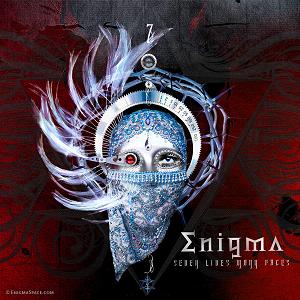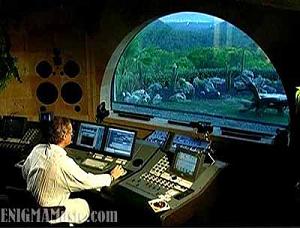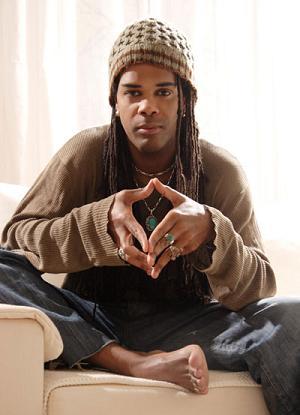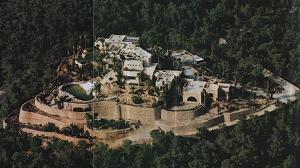Album Review: Enigma: Seven Lives Many Faces
 | | Enigma: Seven Lives Many Faces |
Michael Cretu's Enigma is a tough nut to crack. Attempting to pin down a genre for his music is next to impossible, though he has been classified as everything from electronica and dance to pop-sensible new age world music. Enigma, a mostly one-man operation, blasted onto the scene back in 1990 with MCMXC a.D., an avant-garde melding of synth-pop, new age music, and Gregorian chant that remains Cretu's best-selling album. Enigma has continued to release albums since, but despite a Grammy nomination for 2006's A Posteriori and an overwhelmingly large fanbase in Germany (Michael Cretu seems second only to David Hasselhoff there), the "band" has never been as widely successful as it was back in the early 90's. Nothing has slowed Enigma's momentum, however, and the seventh studio album, Seven Lives Many Faces, proves that Cretu still has a few tricks up his sleeve. The question, of course, is whether these new tricks are worth listening to anymore.
While it doesn't deviate from Cretu's formula as much as A Posteriori does, Seven Lives Many Faces does take Enigma down some new roads. Avid listeners will be able to notice the new beats and wide array of new sound samples, but a casual audience would be hard pressed to deliniate this album from many earlier Enigma works. This is exactly how it should be, since it shows a continued creativity and experimentation without sacrificing that unique Enigma flavor.
 | | Michael Cretu in his studio--no doubt the coolest music studio in the entire world |
The experimentive side of the album is by far the more successful. The first single from the album, "Seven Lives," is probably the best track, with its hip-hop style beats (replete with a beatboxer and the sampling of breaking glass) accentuated by an acidic violin and other strings. The vocals, provided by Enigma staple Andru Donalds, are acceptable for what they are, though not very stunning. The trend of moving away from dance beats and into the realm of hip-hop continues in varying degrees in several other tracks, including the final track, "The Language of Silence," which is punctuated by an over-abundance of oos and ahs that sound as though they were sampled from a very different soul album. As for the strings, they are used to great effect in "Touchness," "La Puerta Del Cielo," and "Déjà Vu."
One track certainly worth discussing is "Hell's Heaven," by far the most interesting and experimental song on the whole album. There are several new samples used here, most of which come from the realm of electronica, and they are punctuated by a methodical world beat and jarring sound interruptions. There is one sample that is a little too cacophonous, as it sounds like the protestations of an angry Atari 2600, but otherwise, the melding of beautiful harmonies, strings, and ambient sounds with loud burps, sudden pans, and gapped sounds is somehow hypnotic. If you can only listen to two tracks on the album, I recommend "Seven Lives" and "Hell's Heaven."
 | | Michael's twin children, Nikita and Sebastian, though much older than seen here, provide the vocals for "The Same Parents" (ex-wife Sandra does not contribute on the album) |
"La Puerta Del Cielo," the second single released from the album, isn't bad, but it doesn't chart much new territory for Enigma. The beats and melodies are, for much of the song, classic Cretu, though he does switch it up a bit towards the end of the song with more of that hip-hop influence he uses so well throughout the album. The lyrics, sung in Catalan by newcomer Margarita Roig (who also provides the vocals for "Between Generations"), are hauntingly beautiful, though Roig's singing is slightly hobbit-esque.
Other songs worth mentioning are "The Same Parents," an above-average but repetative track most notable for its use of vocals from Cretu's twin children, and "Disrupted Love," a fantastic song that is utterly ruined by its awful lyrics (unless, of course, you like hearing some guy telling you over and over again that, if you smell and touch him, he'll be your daddy and your mommy).
The album has a few other tracks that are forgettable at best, and it certainly has enough problems to keep it from being one of Enigma's better efforts. Oddly, the most unsatisfying songs are the ones in which Cretu tries to recall sounds and ideas from previous albums. For example, "Déjà Vu" uses several samples from 1996's Le Roi Est Mort, Vive Le Roi!, but aside from a really interesting opening, it never feels like anything more than a bland remix. Additionally, there are a few songs, such as "The Language of Sound" and "Touchness," that get overly repetitive and boring.
 | | Andru Donalds has provided lead vocals on four of Enigma's seven albums |
Andru Donalds' vocals are also a weak point. While Donalds' work on previous albums has been stellar (especially in the songs "In the Shadow, In the Light," "Boum-Boum," and "Modern Crusaders"), his vocals throughout this album are all pretty uninspiring, even in songs that should use them well (such as "Seven Lives"). This is partly due to the clunky and off-putting lyrics, but it also seems to stem from a lack of enthusiasm on Donalds' part.
Additionally, the tracks don't feel very cohesive. With the exception of the usage of hip-hop-inspired beats, there is little connective tissue holding the songs together. This could have been corrected with more fluid transitions between the individual tracks, like there are on many previous Enigma albums (especially MCMXC a.D. and Voyageur), but alas, there is little flow from one song to the next.
On the whole, this is just one example of the album's ultimate downfall: it feels unfinished. There are bland ideas that could have been replaced or retooled to make better ones, and there are few, if any, memorable hooks. In the past, Enigma albums have always been separated by three years, but Seven Lives Many Faces was released last year, only two years following A Posteriori, and that truncated gestation time is definitely apparent.
 | | Michael Cretu's "house" in Ibiza, Spain |
Still, there are a few strokes of genius that make this album worth listening to. "Seven Lives" and "Hell's Heaven" stand toe-to-toe with Enigma's best songs, and there are plenty of new ideas and interesting riffs throughout the whole album. Michael Cretu continues to evolve, and if nothing else comes out of this album, hip-hop influence is a welcome and surprising addition to his awesome toolkit. Fans of Enigma should definitely pick this one up, but the unitiated should probably start with one of Enigma's better efforts.
FINAL SCORE:





Fans should enjoy it, but not many other people will get what Cretu is trying to do here.
|
-e. magill, 03/17/2009
|
|